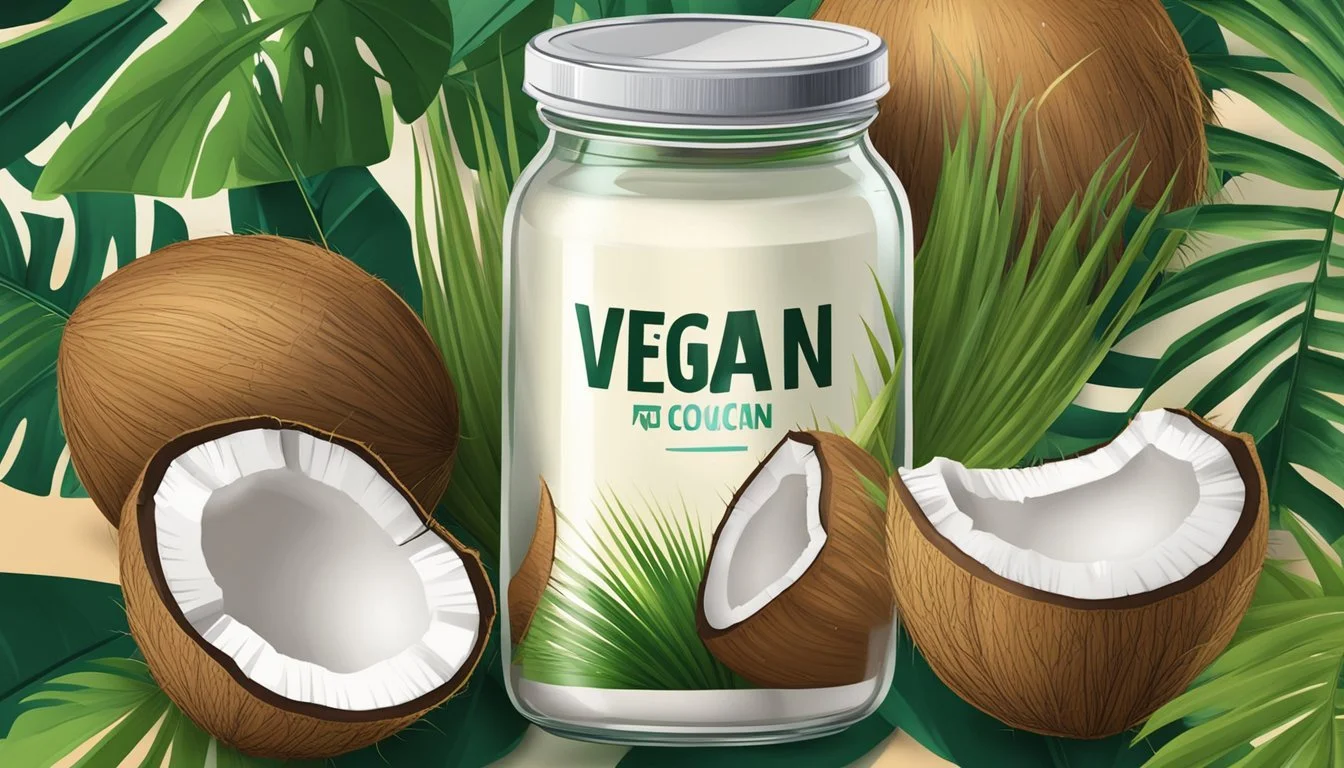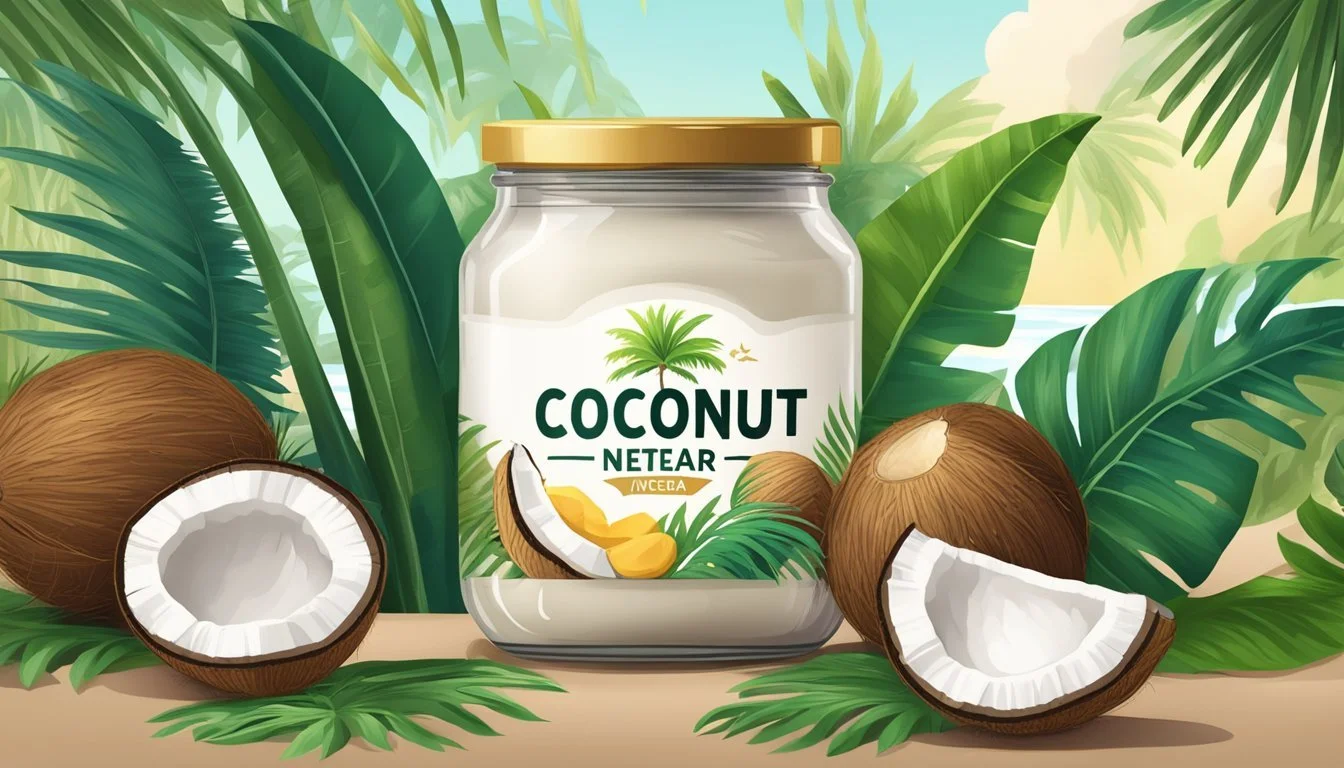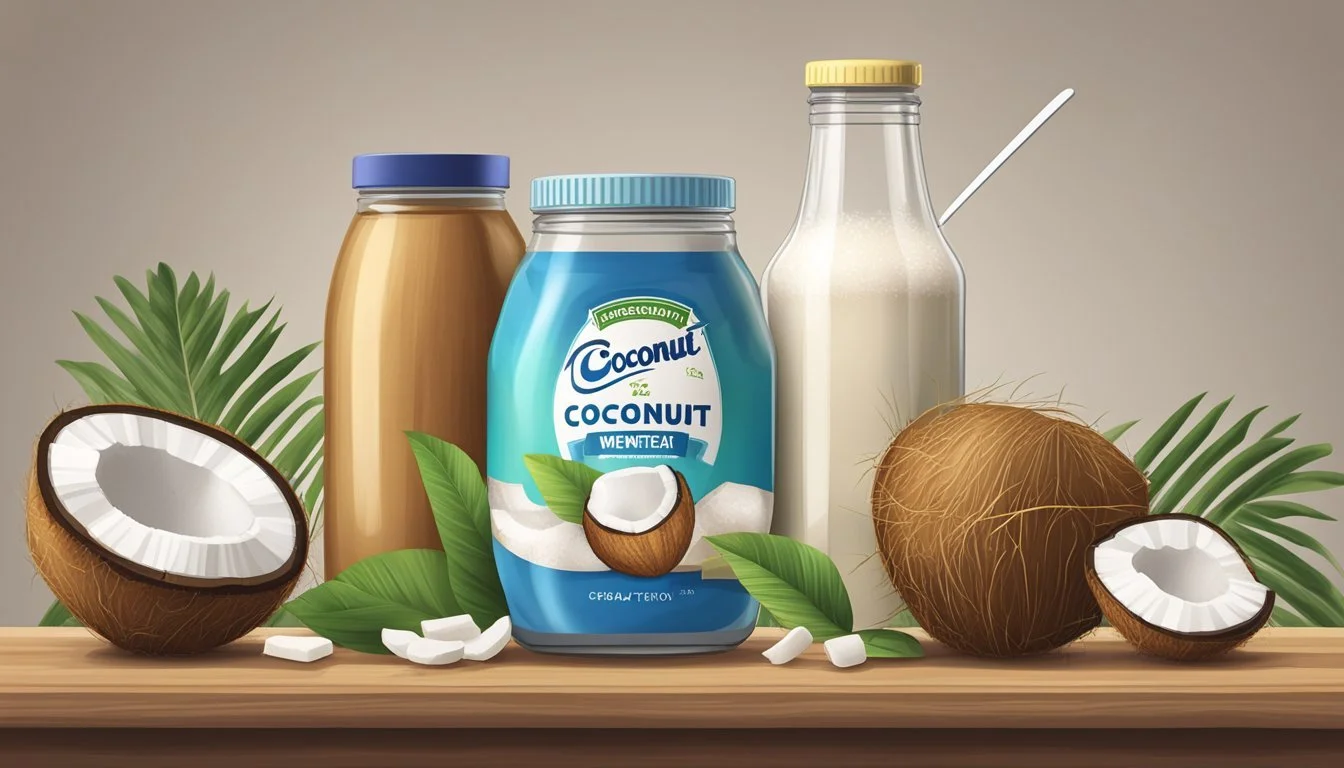Is Coconut Nectar Vegan?
Unveiling the Truth About This Sweetener
Coconut nectar is a natural sweetener derived from the sap of coconut palm blossoms. Due to its plant-based origin, it is indeed vegan, offering a suitable sweetening alternative for those adhering to a vegan lifestyle. Not only does it cater to vegans but it also benefits those seeking natural substitutes for refined sugars. As a minimally processed product, coconut nectar retains a profile rich in nutrients, which is often a point of consideration for health-conscious consumers.
The appeal of coconut nectar extends beyond its vegan status. Its relatively low glycemic index compared to conventional sweeteners attracts individuals monitoring their blood sugar levels. Additionally, coconut nectar contains amino acids, vitamins, and minerals, underscoring its nutritional value.
In culinary applications, coconut nectar is versatile, able to replace other sweeteners like honey and maple syrup in recipes. Its neutral taste ensures it can be incorporated into a variety of dishes without imparting a distinct coconut flavor, making it a convenient addition to the pantry of anyone choosing plant-based ingredients without compromising on taste or texture.
What Is Coconut Nectar?
Coconut nectar is a natural sweetener derived from the sap of the coconut tree, specifically from the coconut blossoms. It is procured by tapping the thick stalks or stems of the flower buds. The sap is then collected and often minimally processed, resulting in a liquid form reminiscent of honey or maple syrup in consistency.
Key Characteristics:
Source: Coconut tree blossoms
State: Liquid
Processing: Minimal
The sap, once extracted, is heated at low temperatures to evaporate its water content, which in turn thickens the sap into a syrup-like consistency popularly known as coconut nectar. Throughout this process, the nutrients inherent in the coconut sap are largely preserved, positioning coconut nectar as a more nutrient-rich alternative when compared to common processed sweeteners.
This sweetener bears a relatively low glycemic index (GI) compared to standard table sugar. The GI is a measure of how quickly a food can increase blood sugar levels, with lower values being preferable for maintaining steady glucose levels.
Furthermore, coconut nectar is noted for its compatibility with vegan diets as its production does not involve any animal by-products nor does it harm the coconut trees, supporting sustainability. Its versatility allows it to be used in various culinary applications, from baking to beverage sweetening, and even as a topping for pancakes or desserts.
Vital Components of Coconut Nectar:
Low Glycemic Index: Ideal for sustained energy
Nutrient-Rich: Contains minerals and amino acids
Vegan-Friendly: No harm to animals in production
Sustainability: Eco-conscious choice
Nutritional Profile of Coconut Nectar
Coconut nectar, as a sweetener derived from the sap of coconut blossoms, offers a unique nutritional profile that distinguishes it from other sweeteners. It contains not just sugars but also an array of minerals and some vitamins and amino acids that contribute to its touted health benefits.
Minerals in Coconut Nectar
Coconut nectar is a source of minerals necessary for various bodily functions. Some of the key minerals include:
Magnesium: Important for muscle and nerve function, as well as blood sugar control.
Potassium: Vital for maintaining proper heart function and regulating blood pressure.
Iron: Essential for blood production and the transportation of oxygen throughout the body.
Zinc: Plays a role in immune function, protein synthesis, and DNA formation.
Vitamins and Amino Acids
While coconut nectar is not a significant source of vitamins, it does contain traces of B vitamins which are crucial for maintaining energy levels and overall metabolic health. Additionally, it has amino acids, which are the building blocks of proteins and play an integral role in various bodily processes.
Coconut Nectar and Veganism
Coconut nectar is often considered a staple in a plant-based diet, particularly for those adhering to vegan principles. Extracted from the sap of coconut palm blossoms, coconut nectar is viewed as an ethical and sustainable sweetener alternative. As a vegan sweetening option, it does not involve animal-derived ingredients or direct harm to animals, making it suitable for people following a vegan lifestyle.
The process of sourcing coconut nectar does not require intervention with bee populations or their habitats. This is a key consideration for many vegans, who are concerned about the welfare of bees and the environmental impact of bee farming. As coconut nectar is plant-based and harvested without exploiting bees, it aligns with the vegan philosophy which seeks to avoid animal exploitation and cruelty.
In addition to its vegan-friendly production, coconut nectar boasts several nutritional benefits. It contains a broad spectrum of 17 amino acids and minerals like zinc and magnesium. It also has a glycemic index of around 35, which is lower than many traditional sweeteners, and this can contribute to longer-lasting satiety compared to regular sugar.
Advantages Description Plant-based Coconut nectar is purely derived from plants. Eco-friendly Harvesting is sustainable and minimally invasive to the environment. Nutrient-rich Offers amino acids, zinc, and magnesium. Low Glycemic Less impact on blood sugar levels, supporting overall health.
For vegans in search of a versatile sweetener, coconut nectar provides both an ethical and nutritious option for various culinary applications, from baking to sweetening beverages.
Glycemic Index of Coconut Nectar
Coconut nectar is often discussed in the context of its glycemic index (GI), which is a measure indicating how quickly a carbohydrate-containing food raises blood sugar levels. Foods are ranked on a scale from 0 to 100, with lower values indicating a slower release of glucose.
Coconut nectar has a GI of approximately 35, categorizing it as a low glycemic sweetener. Low GI foods have a value of 55 or less; they are preferable for maintaining more stable blood sugar levels, which is particularly beneficial for diabetics and those looking to manage their glycemic response.
It is worth noting that while coconut nectar's GI is lower than many sweeteners, including refined sugar, which typically stands at a GI of around 60, moderation remains crucial. Consuming it in large amounts can still contribute to an increase in blood sugar levels.
Table: Sweetener Glycemic Index Comparison
Sweetener Glycemic Index (Approximate) Coconut Nectar 35 Refined Sugar 60 Agave Nectar 15 - 30 Maple Syrup 54
In summary, coconut nectar offers a lower glycemic alternative to many conventional sweeteners, making it a more attractive option for those seeking to moderate their glycemic impact. However, as with any sweetener, its consumption should be balanced with a comprehensive dietary approach for optimal health.
Coconut Nectar vs Other Sweeteners
In the diverse world of sweeteners, coconut nectar stands out as a vegan option. It is often compared to other sweetening agents for its health benefits and suitability in vegan diets.
Honey and Bee Products
Honey and products derived from bees are natural sweeteners that are widely used for their rich taste and potential health benefits. However, they are not considered vegan since their production involves bees. Coconut nectar provides a vegan alternative with a similar level of sweetness and a glycemic index that is generally lower than that of honey.
Refined Sugars and Artificial Sweeteners
Refined sugars, such as white granulated sugar, often undergo processing that may involve animal products, like bone char for bleaching. Artificial sweeteners provide low-calorie options but are synthetically produced and come with their own health debates. Coconut nectar, in contrast, is minimally processed and devoid of animal by-products, making it a favorable option for those adhering to a vegan and natural diet.
Maple Syrup and Agave Nectar
Maple syrup is a natural sweetener like coconut nectar, and both are often praised for their rich flavors and lower glycemic indices compared to conventional sugar. Agave nectar, which is extracted from the same plant family as coconut nectar, is similar in vegan appeal but is usually higher in fructose. Consumers often weigh these sweeteners' flavor profiles and health impacts when selecting an ideal option.
Other Natural Sweeteners
There is a range of other natural sweeteners, such as fruit juices and syrups, stevia, and date sugar. These alternatives are derived from plants and can be part of a vegan diet. They each have distinct tastes and nutritional benefits that users may consider alongside coconut nectar, though few can rival coconut nectar's low fructose content and sustainability.
Health Benefits and Concerns
Coconut nectar, a natural sweetener derived from the sap of the coconut palm, is hailed for its health benefits yet warrants consideration for specific health conditions.
Antioxidant Properties
Coconut nectar is a source of antioxidants, which are compounds that help protect the body from oxidative damage caused by free radicals. Antioxidants are essential for maintaining a healthy immune system and preventing cellular damage.
Impact on Liver
The liver is responsible for metabolizing fructose, and excessive consumption of fructose can lead to liver overload. Coconut nectar contains a higher percentage of fructose compared to glucose, which should be consumed in moderation to avoid putting extra stress on the liver.
Diabetes Considerations
For those managing diabetes, it's important to note that coconut nectar has a relatively low glycemic index, meaning it doesn't spike blood sugar levels as high as regular sugar. However, it still contributes to the overall daily intake of sugars and should be used sparingly to maintain blood sugar control.
Culinary Uses of Coconut Nectar
Coconut nectar serves as a versatile sweetener that can easily be incorporated into a variety of recipes, including baked goods, beverages, and no-bake dishes. It has the added advantage of being a vegan alternative to honey.
Baking with Coconut Nectar
When baking, coconut nectar can be used to replace traditional sweeteners. As it is slightly less sweet than regular sugar, one might need to adjust quantities accordingly. Here's a simple guideline to follow:
Cookies: Substitute coconut nectar for sugar in a 1:1 ratio.
Cakes: Use 3/4 cup of coconut nectar for every 1 cup of sugar the recipe calls for.
Pancakes: Add coconut nectar directly to the batter for a subtle sweetness.
For a consistent texture in baked goods, it may be necessary to reduce other liquids in recipes by about 1/4 cup for every cup of coconut nectar added.
Coconut Nectar in Beverages
In beverages, coconut nectar offers a natural sweetness that can enhance the flavor profile without overwhelming it. Incorporate coconut nectar into a variety of drinks:
Smoothies: A tablespoon of coconut nectar can add a touch of sweetness to any smoothie.
Coffee: Replace regular sugar or syrups with coconut nectar in coffee for a rich, caramel-like flavor.
Tea: Mix in a teaspoon of coconut nectar to sweeten herbal or green teas without altering their delicate taste.
As coconut nectar dissolves well in liquids, it's suitable for cold and hot beverages alike.
No-Bake Recipes and Dressings
No-bake recipes benefit from the raw, natural sweetness of coconut nectar. To make use of its flavor:
Raw Desserts: Use it in raw bars or energy balls to bind ingredients together and add natural sweetness.
Salad Dressings: Whisk coconut nectar with olive oil, vinegar, and seasonings for a balanced and tasty dressing.
It's especially suitable for no-bake desserts and dressings due to its liquid form and ease of mixing with other ingredients, making it a convenient and flavorful sweetener.
Sustainable and Ethical Considerations
When evaluating coconut nectar in terms of sustainability and ethics, several factors come into play that solidify its stance as a vegan-friendly sweetener. Coconut nectar is derived from the sap of the coconut palm, and its production is deemed sustainable due to the coconut palm’s low need for additional water and its adaptability to grow in diverse soil conditions.
Organic coconut nectar is cultivated without synthetic pesticides or genetically modified organisms (non-GMO), highlighting its eco-friendly appeal. Organic agriculture maintains soil health and reduces pollution, aligning with ethical environmental practices.
The company Copra specializes in organic coconut nectar and adheres to sustainable farming methods. This commitment ensures that their products, including coconut nectar, have a minimal ecological footprint.
Pesticides are a critical concern for consumers aiming for a sustainable lifestyle. Coconut nectar produced organically does not rely on harmful pesticides, which can leach into the soil and water, causing long-term damage to ecosystems.
In summary, when assessing coconut nectar from a sustainability and ethical standpoint, it is crucial to consider:
The environmental impact of the production process
Compliance with organic and non-GMO standards
The absence of harmful pesticides in the farming practice
Overall, coconut nectar emerges as a commendable sweetener choice for those committed to vegan and eco-conscious consumption.
Substitutes for Coconut Nectar
For those seeking alternatives to coconut nectar, a variety of options are available that cater to different dietary needs and cooking applications. It is important to consider the flavor profile and consistency when selecting a substitute.
Liquid Sweeteners:
Maple Syrup: Offers a rich, distinctive flavor and is a direct liquid substitute. Ideal for dressings, marinades, and baked goods.
Agave Nectar: A mild, versatile sweetener that works well in most recipes calling for coconut nectar.
Molasses: Exhibits a robust, caramel-like taste suitable for recipes that can handle its strong flavor.
Brown Rice Syrup: It has a buttery flavor and is a great option for baking. It is less sweet, so one may need to use more to achieve the desired sweetness.
Syrups from Dates:
Date Syrup: A thicker, fruit-based substitute that provides a rich sweetness and is high in minerals.
Date Paste: Made by blending dates with water, it offers a whole-food alternative with a naturally sweet taste for recipes that can accommodate the added texture.
Other Alternatives:
Corn Syrup: A versatile sweetener but notably sweeter and less flavorful than coconut nectar.
Stevia: A sugar-free, plant-based option. Since it is much sweeter than coconut nectar, it should be used sparingly and might require recipe adjustments to achieve the right sweetness level.
Each substitute will impart its own flavor and may affect the texture of the final product. Users should adjust quantities to taste and consider the end use when selecting an alternative sweetener.









